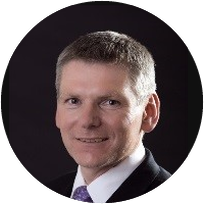Speakers

Jan Antolík
Neuroscientist and Assistant Professor at Faculty of Mathematics and Physics, Charles University
Mgr. Jan Antolík, Ph.D. is a computational neuroscientist working in Prague, where he leads the Computational Systems Neuroscience group at the Faculty of Mathematics and Physics of Charles University. Jan Antolík received his doctorate at the University of Edinburgh, and after working as a post-doc at University College London and CNRS in France, he returned to his alma mater - Charles University. His main research interests are systems neuroscience, the visual system, sensory coding and prosthetic sensory restoration. It seeks to understand how visual information is transformed as it passes through the various stages of visual processing to form what we perceive as our everyday visual perception of the world. Recently, he has increasingly focused on the application of this basic research to the issue of designing future neuro-prosthetic systems for vision restoration.

Ondřej Barva
Global business development manager, Pocket Virtuality
Ondřej Barva has been dedicated to the development of international trade for 15 years, specializing in Japanese companies. Among his greatest achievements are the expansion of Japanese production technology at European car companies, or the supervision of the commissioning of reactor cleaning at a new oil refinery in Saudi Arabia. After many years of experience in the engineering environment, he decided to connect it with his interest in modern technologies and has been working with Pocket Virtuality for more than two years to expand augmented reality in an industrial environment. Thanks to his experience on projects in this complex developing environment, he acts as a consultant in various projects from art to mass production.

Marek Bražina
Customer Engineer, Google Cloud

David Černý
Researcher at the Institute of State and Law of the Academy of Sciences of the Czech Republic and the Institute of Informatics of the Academy of Sciences of the Czech Republic
PhDr. David Černý, Ph.D. is a researcher at the Institute of State and Law of the Academy of Sciences of the Czech Republic and the Institute of Informatics of the Academy of Sciences of the Czech Republic. He is devoted to applied ethics, philosophy and ethics of AI and robotics. He is the author of a number of publications, e.g. The Principle of Double Effect: A History and Philosophical Defense (Routledge, New York 2020, 2022) or Autonomous Vehicle Ethics: The Trolley Problem and Beyond (with R. Jenkins, T. Hříbek, Oxford University Press 2022). He is a member of the Young Academy of Europe, the International Association for Computing and Philosophy and others, at the Ministry of Transport he heads the Ethics Commission for assessing issues related to connected and autonomous transport. He is a co-founding member of the Karel Čapek Center for the Study of Values in Science and Technology (www.cevast.org).

Radek Haratek
Commander of the Information and Cyber Forces of the Army of the Czech Republic
Plk. gšt. Ing. Radek Haratek, M.S. is a professional soldier, he worked for more than 20 years in the Special Forces of the Army of the Czech Republic, he is currently responsible for building the capabilities of the ACR in cyberspace and the information environment. He deals with the implementation of modern technologies in the army, his main area of interest is the use of artificial intelligence to support decision-making, cyber defense and the automation of partial activities.

Lukáš Hejtmánek
Researcher, Psychological Institute of the Academy of Sciences of the Czech Republic
Mgr. Lukáš Hejtmánek, Ph.D. is a psychologist researching the cognitive aspects of virtual reality - how people perceive virtual worlds, what information they take from them and to what extent virtual reality experiences are comparable to those we experience in the real world. He currently works at the National Institute of Mental Health, the Psychological Institute of the Academy of Sciences and the Faculty of Humanities of Charles University, where he leads the Cyberspacelab group.

Jiří Hynek
President and Executive Director, AOBP
RNDr. Jiří Hynek is Czech manager, politician and economic diplomat in the defense and security sector, head of the Czech Republic delegation to the NATO Industrial Advisory Group.He is since 2011, president and executive director of the Defense and Security Industry Association of the Czech Republic.

Kateřina Chládková
Senior Researcher, The Institute of Psychology of the Czech Academy of Sciences
Kateřina Chládková, PhD. is a senior researcher at the Institute of Psychology of the Czech Academy of Sciences and an assistant professor at the Faculty of Arts of Charles University. She leads the SPEAKINlab research group, which focuses on speech cognition, in particular research on language learning and social aspects of verbal interaction. The aim of her research is to describe the mechanisms that enable people to find structure in the current linguistic environment and understand a spoken message, and to identify factors that support or hinder speech learning and understanding. She explores how speech hallucinations arise, how conscious or unconscious modifications of language affect attitudes towards a communication partner, and how we can hear even what is not said.

Jiří Karpeta
Co-founder, Robodrone Industries s.r.o.
Ing. Jiří Karpeta, MBA started his practice as a developer and then head of the division producing the #3 ERP system on the Czech market. He subsequently worked at Microsoft, where he was dedicated to technical evangelism across several technologies and customer segments. His passion for new technologies led him to Robodrone Industries, which he co-founded in 2013. The company's mission is to create heavy-duty drones that are easy to control and can be fully integrated into several industrial scenarios. The latest developments in artificial intelligence have unlocked the amazing potential of drones or robotic systems in general, especially when it comes to autonomous operations. However, it has also raised many concerns about the security and management of such systems. It is therefore an urgent challenge for us and everyone in the industry to find an appropriate way to design and manage future autonomous systems.

Martin Kvapilík
Manager Quality & IT, TOSHULIN Group
Mgr. Ing. Martin Kvapilík FEng. studied the technical cybernetics at the Brno University of Technology, theology at Palacky University Olomouc and the Architecture of Complex Systems at MIT. He is a Quality and IT Manager at TOSHULIN Group, a member of the Engineering Academy of the Czech Republic and the international Society of Catholic Scientists. His interests include the mind/body problem, AI and the interdisciplinarity of philosophy, theology and systems approach.

Kateřina Lesch
Senior Manager AI & Data, Deloitte
Mgr. Kateřina Lesch, Ph.D is a data scientist with an NLP background. Having previously worked as a product developer and business consultant specializing on Text Analytics, she now works as a Semantic Data Science Lead and a senior manager within the AI & Data team of Deloitte. Kateřina got her PhD. in Computational Linguistics. Her research concerns mainly Sentiment Analysis and Information Extraction. She also has expertise in Cognitive Automation and Forensic Linguistics.

Dita Malečková
Conference moderator
Philosopher, writer and independent researcher in
the field of artificial intelligence
Mgr. Dita Malečková, Ph. D. studied philosophy and information science at the Faculty of Arts, ChU, lectured at New Media Studies at Charles University and currently works, for example, at FAMU in Prague. He has been dealing with media theory and technologies in the context of artistic creation and the history of philosophy for a long time. Since 2019, she has been working on neural networks, writes and lectures about AI, and is a co-creator of the Digital Philosopher (2019) and Digital Writer (2020-21) projects. Samples of her work can be found on the website: https://1url.cz/@ditamorg

Tomáš Müller
President, AFCEA ČR
Ing. Tomáš Müller works in senior management positions and specializes in the preparation and implementation of time and operationally critical ICT projects and applications for the defense security segment and critical infrastructure. Since 2016, he has been the president of the Czech branch of AFCEA. He actively participates in events with the aim of increasing the capabilities of the professional community for the benefit of the defense and security of the Czech Republic. Especially in the areas of communication and information systems, cyber security and defense, protection of soft targets and cognitive warfare.

Miroslav Nečas
Business Development Manager, TOVEK
Ing. Miroslav Nečas, PhD. has over 15 years of experience in applying advanced technologies to support human decision-making in the fields of Defence, Law Enforcement, and Intelligence. He is currently working on the European Defence Research project PEONEER, which focuses on perpetual Earth Observation. He is the chair of the NIAG study SG 279 Protocols and Standards to certify Applications using AI within NATO. He led Data and Big Data Analysis and AI team at NIAG Study SG 252, which focused on Emerging and Disruptive Technologies in the context of Emerging Powers. He is a member of the Board of Directors at the AFCEA Czech Chapter.

Tomáš Nikolai
Head of the Department of Psychology, The Faculty of Arts Charles University
doc. Mgr. et Mgr. Tomáš Nikolai, Ph.D. is a clinical psychologist and neuropsychologist, associate professor of Medical Psychology and head of the Department of Psychology at the The Faculty of Arts Charles University. He cooperates with the Neurological Clinic at First Faculty of Medicine Charles University where he co-founded the Neuropsychology Laboratory. He also works for a long time in the Cognitive Center of the 2nd Faculty of Neurology, Charles University, where he works as a supervising neuropsychologist. In his research, he mainly deals with neurodegenerative diseases and their early clinical manifestations with an emphasis on cognitive functions and neuropsychiatric symptoms. In addition to research, he works as a clinical psychologist with a focus on psychological diagnosis. He is a member of the board of directors of the company Fokus Praha, which deals with the care of patients with mental illnesses.

Radim Polčák
Vice-rector for development, legal and information technologies, Masaryk University
prof. JUDr. Radim Polčák, Ph.D. mainly deals with information technology law and legal theory. He is founding member of the European Law Institute (ELI) and the European Academy of Law and ICT. He is national expert for the Czech Republic in the organization Global Partnership for Artificial Intelligence (GPAI), member of the Legislative Council of the Government of the Czech Republic, a member of the Czech Digital Team (advisory board of the Deputy Prime Minister for digitalization) and a member of the NÚKIB Board of Appeal.

Bohuslav Přikryl
Viceprezident for research, development and innovation, CSG Aerospace
prof. Ing. Bohuslav Přikryl, Ph.D served in the years 2012–2020 as rector-commander of the University of Defense in Brno. In the previous term, he held many important academic positions. He simultaneously served in a number of scientific councils, expert commissions or committees. As part of his service in the Armed Forces of the Czech Republic, he attained the rank of brigadier general.

Jakub Sedláček
Assistant Professor at New Media Studies, The Faculty of Arts Charles University
Mgr. Jakub Sedláček, Ph.D. is assistant professor at New Media Studies at the Faculty of Social Sciences, Charles University, and PhD in Sociology, who has been working with big social data, influencers and generative artificial intelligence for a long time. In the subject "AI in the creative process", he practically introduces students to where the manipulation of images, video, music and voice, with the help of artificial intelligence, has reached in the last two years. Using data from social networks, he then examines the social role of celebrities and the possibilities of using big data in sociology. Outside the academy, he worked in the music industry and advertising agencies.

Josef Šlerka
Head of New Media Studies, The Faculty of Arts Charles University
Mgr. Josef Šlerka, Ph.D. is a Czech semiotician and expert in the analysis of data from social networks. He studied Aesthetics and Information Science at the Faculty of Arts, Charles University. Professionally, he worked as head of research and development at Ataxo and later at Socialbakers. From August 2017 to April 2021, he was the director of the Endowment Fund for Independent Journalism and still works as a teacher at Charles University as head of the New Media Studies. In 2014, he was voted Person of the Year in the Křišťálová Lupa awards. He systematically deals with the issue of disinformation and conspiracy theories.

Aleš Špidla
Co-moderator of the conference and panel discussions
Ing. Aleš Špidla studied technical cybernetics. As director of the cyber security department at the Ministry of the Interior of the Czech Republic, he designed the cyber security strategy of the Czech Republic and participated in the creation of the Cyber Security Law. He worked as a manager or director of security or risk management departments in a number of state and commercial organizations. He was the president of the Czech Institute of Information Security Managers until 2022. He is the guarantor and teacher of the MBA study program "Management and cyber security" and the co-guarantor and teacher of the LL.M program "Information Protection" at CEVRO Institute University. He is intensively dedicated to evangelizing the issue of cyber and information security in all its aspects. He lectures at conferences, appears in the media, publishes articles on this topic.

Jan Tyl
CEO and Developer, Alpha Industries
Mgr. Jan Tyl, MBA is an AI researcher, entrepreneur and promoter, and an award-winning creator of AI-powered digital humans. In his work, he often strives to make AI more accessible and understandable to the general public. In 2018, Jan founded Alpha Industries. Just a year later, in 2019, the company won the AI Awards for the best idea in artificial intelligence for the Digital Philosopher project, which brings famous philosophers back to life with AI, including a famous hero Václav Havel's Velvet Revolution. It was later followed by Digital Writer and Digital Writer 2.0, collaborating with important Czech writers. He created a digital person for the election for Czech Television Super debate 2021, which asked politicians unusual questions. Jan has also created a number of other AI-based solutions, namely Emotion Detector, Insult Detector, DigiGoethe and DigiHavel.

Ivan Zelinka
University Professor, VŠB-TU Ostrava
prof. Ing. Ivan Zelinka, Ph.D. specializes in artificial intelligence algorithms and cyber security. He is a member of the British Computer Society as a Chartered IT Professional (CITP), IEEE - Computer Intelligent System and several program committees of international conferences. He is the editor-in-chief of the book edition "Emergence, Complexity and Computation" published by Springer.

















